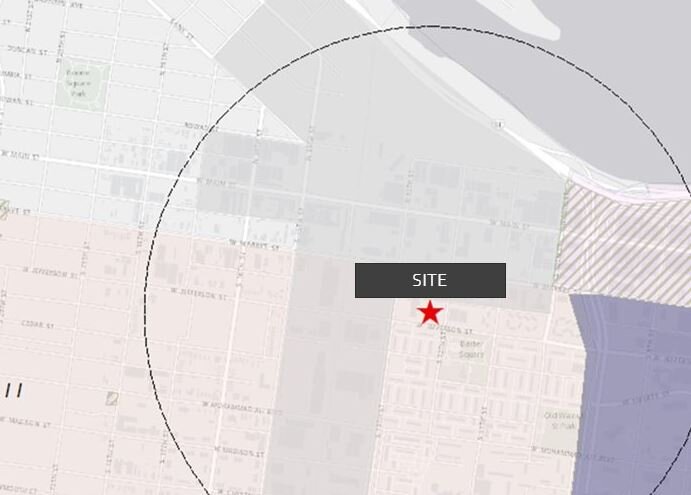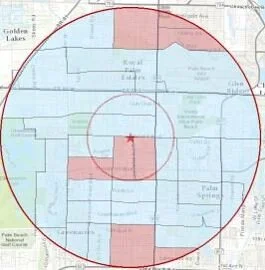Development Consulting
Mixed-use neighborhood retail
A Kentucky-based CDC needed development expertise to determine potential mission-aligned uses for their underutilized land in a neighborhood that was predicted to go through revitalization. AIM was hired by a national faith-based organization as the lead development consultant to the CDC. AIM began by reviewing the zoning and land use regulations for the property, and local housing and economic development plans to identify local municipal priorities. Market research, demand and supply studies, interviews with elected officials, local agencies and potential lenders and funders were used to further define the project plan. Preliminary proformas and cash flow statements that identified potential funding sources, development costs, projected rents and operating costs were developed to determine project viability. The final concept was for the development of a mixed-use neighborhood retail and office building that would advance the organization’s mission, improve access to community needs, complement other public and private local initiatives, and generate cash flow for the CDC. Subsequently, the development consulting work we provided was used to inform the preliminary project concept, project positioning and marketing plan. Subsequently, the client hired AIM to continue as the CDC’s Development Consultant and Owner’s Representative.
property acquisition
An Ohio-based nonprofit was considering the purchase of a hotel and office building as an investment. AIM brought together a team that included a hotel specialist and a real estate attorney to support the analysis and recommendations on offer prices. Our analysis included market studies for the hotel and office markets including rents and vacancy rates for existing projects, and identified projects in construction and recently approved; an overall assessment of the property including legal, tax and regulatory status; a review of the property’s existing profit and loss statements and balance sheets and a review of existing leases and management contracts. Our team also developed financial projections based on traditional market underwriting criteria and preliminary discussions with Cleveland based financial institutions. Based on our work, we proposed offer prices, prepared the offer letter, and provided recommendations on property, management and marketing improvements to improve investment returns.
mission-aligned redevelopment potential
A national faith-based organization requested our support in assessing the missional site development potential of multiple properties in the Washington DC, Maryland and Virginia area. The assessments included traditional indicators such as existing site and building conditions and current space utilization, zoning and land-use designations, and preliminary market studies to determine land values, and area sales prices/rents in the residential, retail and office markets. Limits to redevelopment, such as historic or landmark designations were also identified. Our analysis included an overview of the political climate, local and regional priorities, and available government funding opportunities. In addition, we assessed neighborhood demographics and developed criteria to measure existing levels of community vulnerability and the potential community impacts of housing or economic development redevelopment projects. An assessment of each congregation’s leadership and human capital, financial stability, community connections, and track record on previous missional projects by other Consultant Team members were also incorporated to determine each congregation’s readiness to implement a (re)development plan. Options that were considered included the rehabilitation and reuse of underutilized properties, building additions to accommodate growth, new construction projects on vacant land, building demolition and replacement for properties that are physical or functionally obsolete or property sale.
The final assessments include property recommendations and project concepts that are based on identified community needs. Congregational review of the assessments is in process.
affordable senior housing
On behalf of our national client, AIM conducted a feasibility study for a church in West Palm Beach, Florida that was considering developing a senior housing project on a portion of their underutilized land. The study focused on determining if the existing political, economic and regulatory environment would support proceeding with development. Our work included presenting the client with an overview of senior housing options based on age restriction, level of services, and funding mechanisms; identifying existing housing programs and funding priorities in the state and local jurisdiction; analyzing the demographic, housing and economic characteristics of seniors; reviewing the site’s zoning and land use potential and identifying regulatory restrictions; and providing a demand/supply market overview that included the location of existing and proposed market rate and affordable senior housing developments, unit sizes, rent/sales ranges, and amenities, land values and construction costs. To support our client’s decision making, we also provided preliminary development proformas based on various density and affordability scenarios.
Our analysis provided the church with a clear indication of the needs, opportunities and challenges of pursuing a development opportunity. The congregation affirmed their commitment to pursue an affordable senior housing development project. AIM prepared/issued a targeted RFQ and vetted submittals to help congregation identify a mission-aligned local developer.





